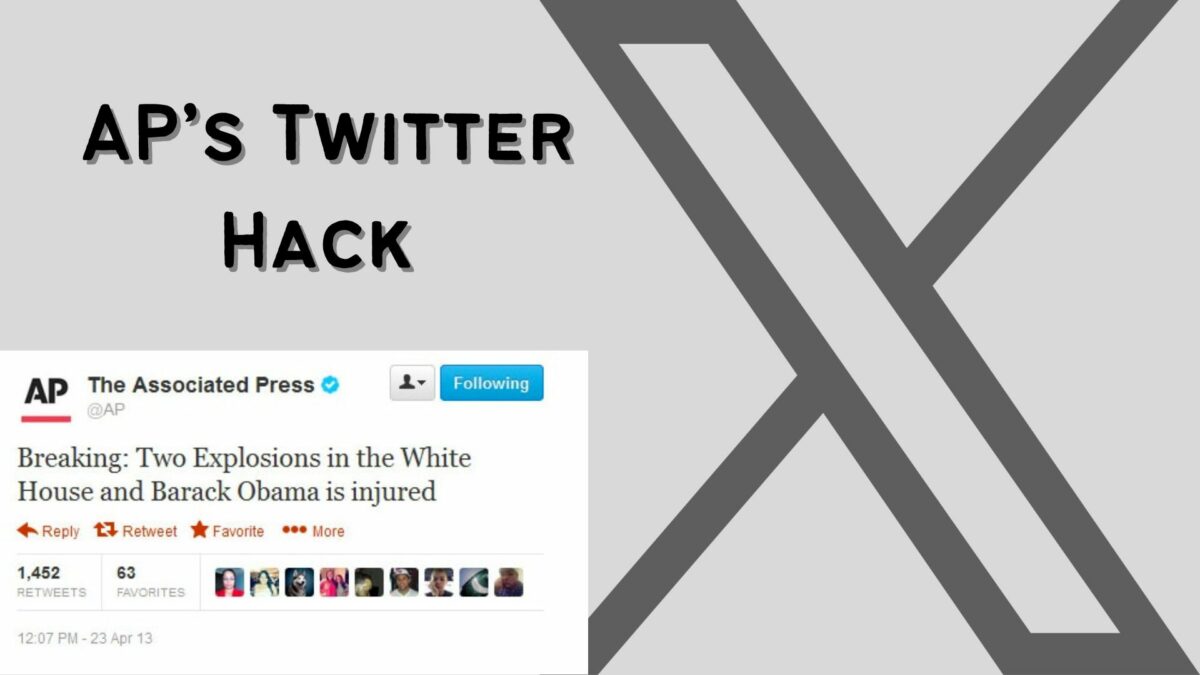“Don’t panic.”
–Douglas Adams
The headlines made for some potentially scary reading.
Breaking: Two Explosions in the White House and Barack Obama is Injured
The impact on the markets was swift and precipitous, with a 140-point freefall within a couple of minutes of the release of those headlines. Other AP reporters scrambled to let the world know that the AP’s Twitter account had been hacked, and within five minutes, most of the world knew that there was no explosion at the White House and that President Obama was doing just fine. The markets quickly recovered.
In the five minutes of unnecessary panic, people lost money. The market dropped over 1%. For every seller, there’s a buyer, so somewhere – probably on the market floors in Wall Street – somebody made a quick buck (or a million) while others, most likely retail investors (finance speak for ordinary folk like you and me) got burned.
It should have never happened. This is a perfect example of what happens when Monkey Brain trades stocks.
Let’s explore why this headline should not have registered a blip in your investment portfolio.
- Your investing time horizon should be in terms of decades, not minutes. Unless you’re fooling yourself into thinking that you can make money day trading, then you shouldn’t be looking at the stock market on a minute-by-minute basis or even a day-by-day basis. Try semi-annually or annually. It’ll keep you from making impulsive investing decisions and will lower your stress significantly.
- There is no world event which will cause you to need to trade within two minutes of it happening. Only a cataclysmic event would require that, and if that happens, you have much bigger problems to deal with than getting in a trade.
- You’re not going to be able to beat the pros at getting to the right trade. The reason that Nassim Nicholas Taleb made his money is because he has a ton of computers and he’s co-located in Wall Street, so when there’s an anomaly in the markets, he can immediately take advantage of the situation. By the time you could have fired up your brokerage account, put in the trade, confirmed it, and had it executed, the opportunity would have been gone and you would be trading at the bottom. Welcome to the herd.
- The news didn’t affect your personal financial life. What if the President had actually been injured or killed? Sit back and go through this little thought exercise. What would have been the true impact on your personal financial life? Would selling all of your holdings, buying a bunch of gold bars, and hiding them in the ground have actually put you ahead in the world? No. A word to the wise: in times of crisis, gold sucks as a barter mechanism. Ask New Orleans residents how many of them were able to buy gasoline or water with gold bars when Katrina went through. Look at people who truly live hand to mouth and have to live in barter societies in destitute Third World countries. Gold bars are effectively useless for them. Gold serves two purposes: make shiny objects and serve as a counterbalance to a fiat currency. Bartering for food, water, and gasoline in times of dire crisis is not one of those two uses.
As many of you know, I’m a big fan of Tim Ferriss. The first book of his that I read was the The 4-Hour Workweek (#aff). The book was much more philosophical about the value and use of your time and your life than it was about the nuts and bolts of creating a business which only required four hours a week of your time. One of the things he talked about was what to do with your free time once you create it. He beat the drum about the media and how we have become lemmings to what they want us to believe is important. His answer was not to watch news or read newspapers. You can find out the most important events in the world by two simple methods:
- Read the above the fold part of a newspaper in a stand or at a store. You’ll see the biggest headline and can decide if it’s something you need to take action on.
- Ask people around what important in the world has happened recently. If something big is happening, people will talk about it. That doesn’t mean you need to take action on it, but you can take it into consideration and decide what, if anything, needs to be done.
Trying to read into the tea leaves and figure out what you should do based on news headlines (real or not) will only lead you to false conclusions.
Here’s a better approach.
Have a plan and stick to it.
Yup. It’s that simple. Get a plan. Make sure it’s attuned to your personal goals and needs. Then stick to it. There’s a reason you have a plan, and there’s a reason that your plan won’t have the phrase “if White House bombed, ZOMG SELL EVERYTHING!” in it.
Your plan will have triggers (to learn about triggers in financial planning, you can subscribe to my 52 week Financial Game Plan). Stick to those triggers.
Otherwise, as the Brits like to say.

I also appeared on Charlottesville, Virginia’s CBS affiliate, CBS 19 to discuss what happened with the markets (and what shouldn’t have happened with your investment portfolio). You can see the interview and read what I had to say here.
Author Profile
- John Davis is a nationally recognized expert on credit reporting, credit scoring, and identity theft. He has written four books about his expertise in the field and has been featured extensively in numerous media outlets such as The Wall Street Journal, The Washington Post, CNN, CBS News, CNBC, Fox Business, and many more. With over 20 years of experience helping consumers understand their credit and identity protection rights, John is passionate about empowering people to take control of their finances. He works with financial institutions to develop consumer-friendly policies that promote financial literacy and responsible borrowing habits.
Latest entries
 Low Income GrantsSeptember 25, 2023How to Get a Free Government Phone: A Step-by-Step Guide
Low Income GrantsSeptember 25, 2023How to Get a Free Government Phone: A Step-by-Step Guide Low Income GrantsSeptember 25, 2023Dental Charities That Help With Dental Costs
Low Income GrantsSeptember 25, 2023Dental Charities That Help With Dental Costs Low Income GrantsSeptember 25, 2023Low-Cost Hearing Aids for Seniors: A Comprehensive Guide
Low Income GrantsSeptember 25, 2023Low-Cost Hearing Aids for Seniors: A Comprehensive Guide Low Income GrantsSeptember 25, 2023Second Chance Apartments that Accept Evictions: A Comprehensive Guide
Low Income GrantsSeptember 25, 2023Second Chance Apartments that Accept Evictions: A Comprehensive Guide

